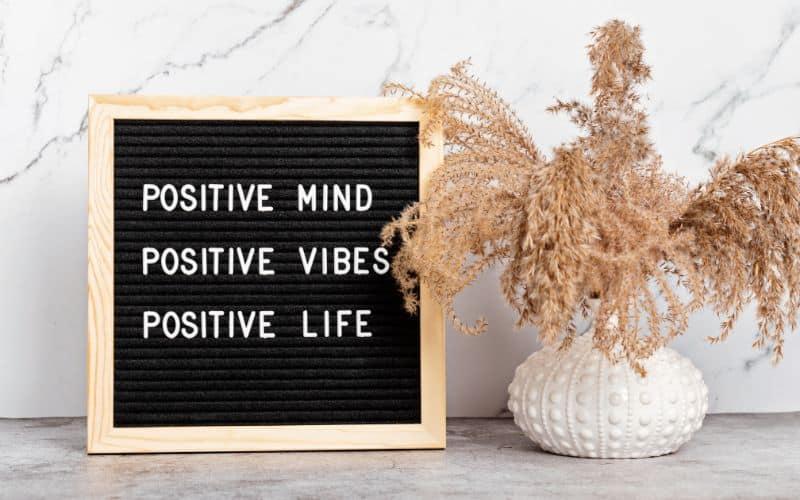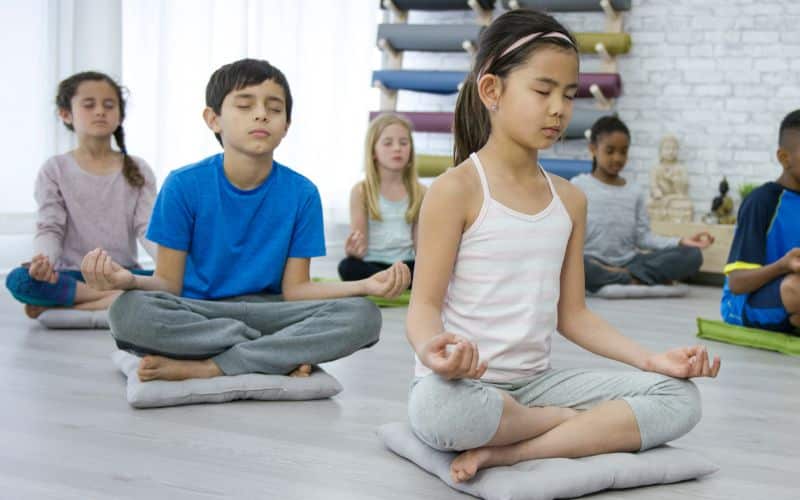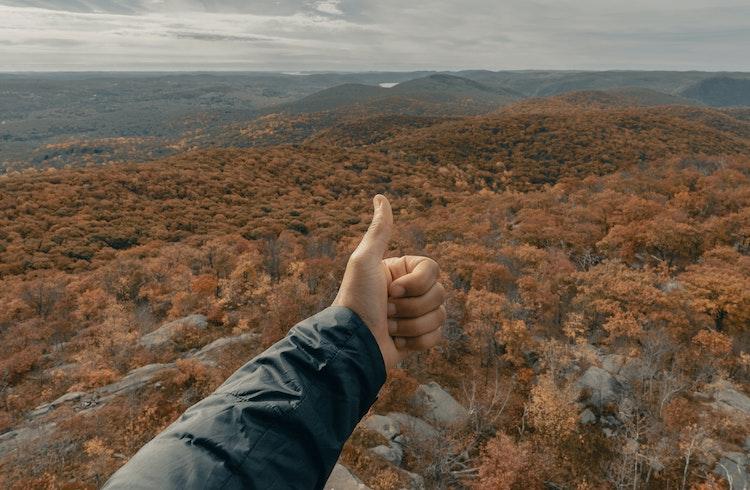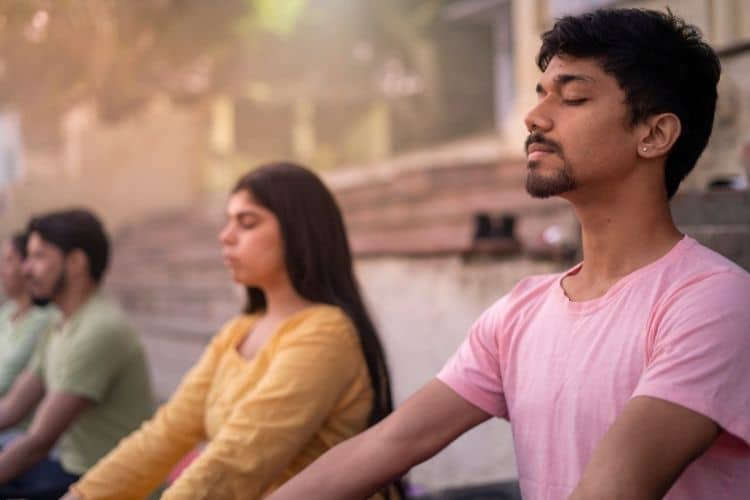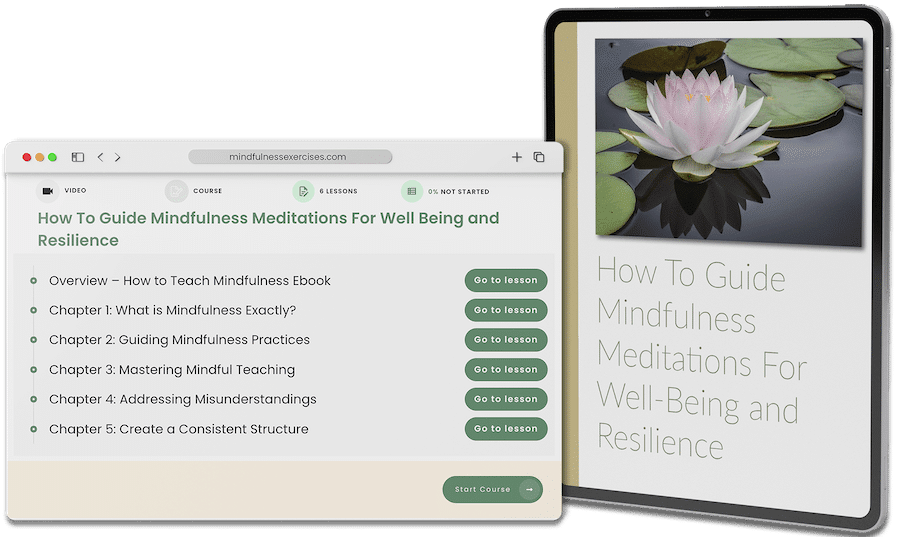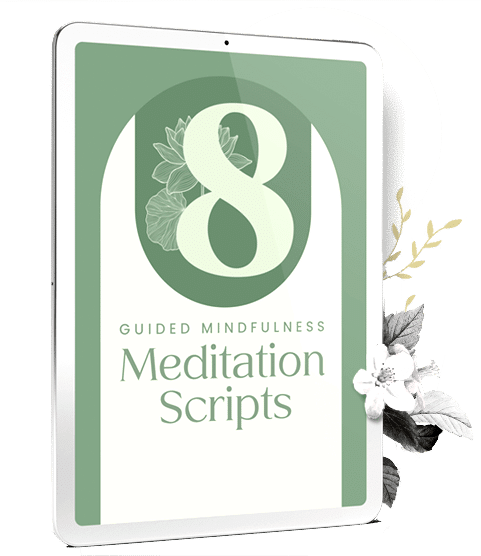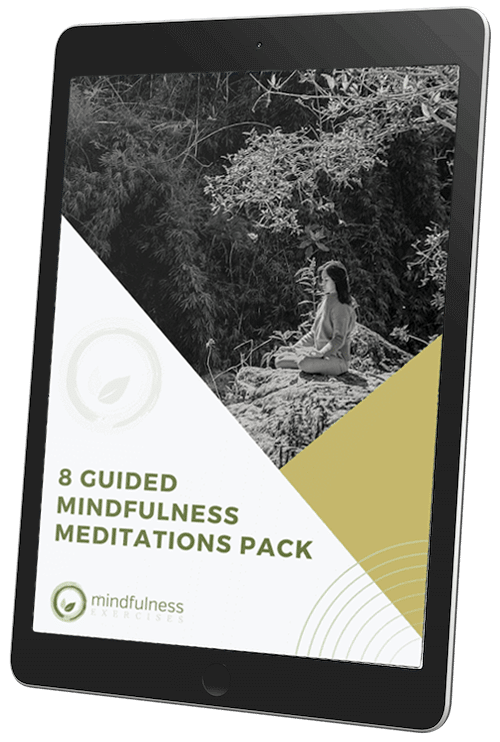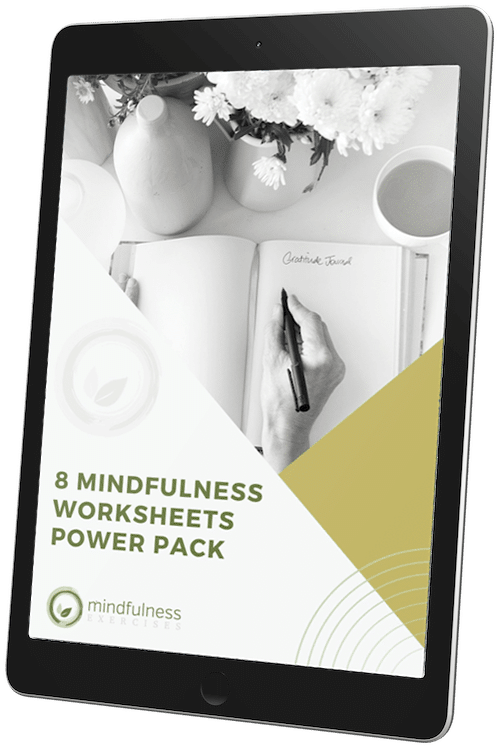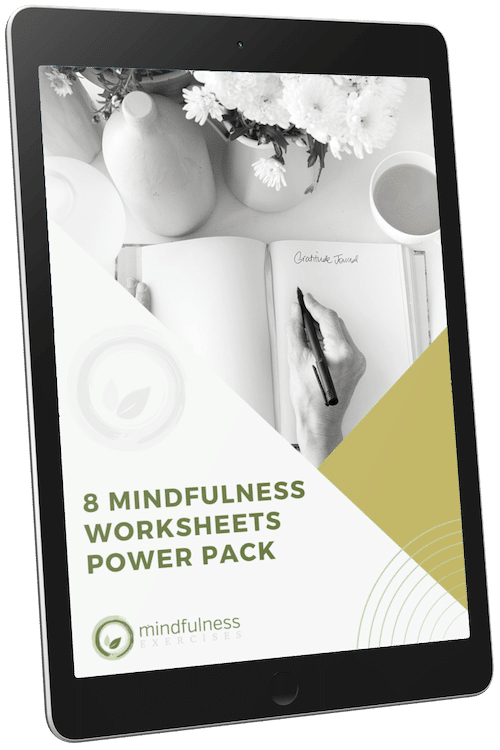Mindfulness is the practice of paying non-judgmental attention to our moment-to-moment experience. It can reduce stress and anxiety, reduce rumination, improve our relationships, enhance empathy and compassion, and more.
It may sound intriguing - even simple - but it’s not necessarily easy.
To support our mindfulness journey, it is helpful to have words of wisdom to gain support. Mindfulness quotes are little nuggets of inspiration that can remind us how to practice - or why we’re practicing in the first place. These 100 mindfulness quotes are a resource you can return to again and again.
100 Best Mindfulness Quotes
Mindfulness Quotes for Work & Leadership
The workplace is often associated with stress, something that mindfulness can help to lessen. These quotes about mindfulness can bring us back to presence and focus when our workday gets the better of us.
- “When you do something, you should do it with your whole body and mind; you should be concentrated on what you do.” Shunryu Suzuki
- “Whatever the present moment contains, accept it as if you had chosen it. Always work with it, not against it.” Eckhart Tolle
- “Gifted leadership occurs where heart and head—feeling and thought—meet. These are the two wings that allow a leader to soar.” Daniel Goleman
- “You are the sky. Everything else is just the weather.” Pema Chödrön
- “Meditation is the ultimate mobile device; you can use it anywhere, anytime, unobtrusively.” Sharon Salzberg
- “The kind of perspective that brings focus and clarity comes from space. And while we may not always have a choice about clearing our calendars, we can make the choice to clear our minds of the habitual momentum that blocks creativity and compassion.” Janice Marturano
- “Emotional Self-Awareness is the ability to understand your own emotions and their effects on your performance.” Daniel Goleman
- “We have the power to improve our work lives immeasurably through awareness, compassion, patience & ingenuity.” Sharon Salzberg
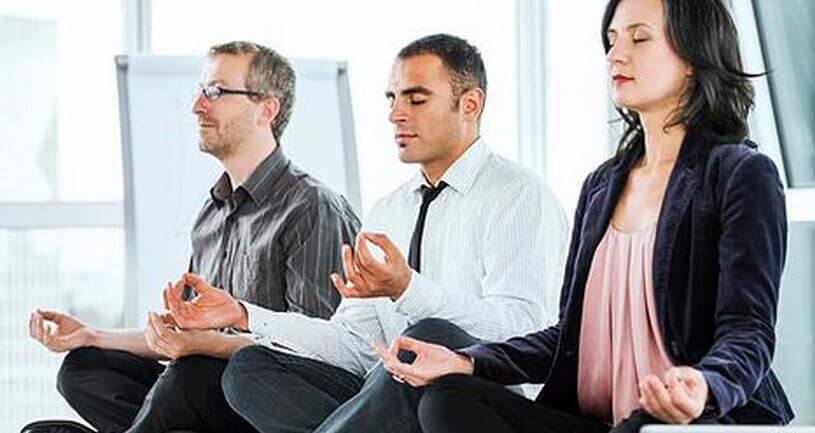
Mindfulness Quotes for Students
Being a student can be stressful. Deadlines and exams can be a lot to manage. By bringing mindfulness to our studies - and to our life in general - we increase curiosity around what we’re learning. Mindfulness may also help to ease stress and anxiety for students.
- “Being mindful means that we suspend judgment for a time, set aside our immediate goals for the future, and take in the present moment as it is rather than as we would like it to be.” J. Mark G. Williams
- “In the beginner's mind there are many possibilities, but in the expert's there are few.” Shunryu Suzuki
- “If it’s out of your hands, it deserves freedom from your mind too.” Ivan Nuru
- “Use every distraction as an object of meditation and they cease to be distractions.” Mingyur Rinpoche
- “Now is the future that you promised yourself last year, last month, last week. Now is the only moment you'll ever really have. Mindfulness is about waking up to this.” Mark Williams
- "The only true wisdom is in knowing you know nothing." Socrates
- “Awareness is the greatest agent for change.” Eckhart Tolle
- “Educating the mind without educating the heart is no education at all.” Aristotle
Mindfulness Quotes for Kids
Mindfulness is not just for adults. Kids can be introduced to mindfulness, too. Mindful quotes can present mindfulness to children in interesting and simple ways. Consider the following as a starting point if you are sharing mindfulness with children.
- “Walk as if you are kissing the Earth with your feet.” Thich Nhat Hanh
- “This is a wonderful day. I have never seen this one before.” Maya Angelou
- “Mindfulness isn't difficult, we just need to remember to do it.” Sharon Salzberg
- “Mindfulness means being awake. It means knowing what you are doing.” Jon Kabat-Zinn
- “Feelings come and go like clouds in a windy sky. Conscious breathing is my anchor.” Thich Nhat Hanh
- “Piglet noticed that even though he had a Very Small Heart, it could hold a rather large amount of Gratitude.” A. A. Milne
- “Life is a dance. Mindfulness is witnessing that dance.” Amit Ray
Mindfulness Quotes for Happiness
We all yearn for happiness. Often, we seek it in objects and relationships, or we chase it into the future. Mindfulness helps us to discover happiness in the here and now. These mindfulness quotes for happiness can remind us to attune to happiness right where we are.
- “If you want others to be happy, practice compassion. If you want to be happy, practice compassion.” Dalai Lama
- “The present moment is filled with joy and happiness. If you are attentive, you will see it.” Thich Nhat Hanh
- “We are no longer happy so soon as we wish to be happier.” Walter Savage Landor
- “Rejoicing in ordinary things is not sentimental or trite. It actually takes guts.” Pema Chödrön
- "Happiness is not something ready made. It comes from your own actions." Dalai Lama
- “In today's rush we all think too much, seek too much, want too much and forget about the joy of just Being.” Eckhart Tolle
- “The moment one gives close attention to anything, even a blade of grass it becomes a mysterious, awesome, indescribably magnificent world in itself.” Henry Miller
- “Mindfulness gives birth to joy and happiness.” Thich Nhat Hanh
Mindfulness Quotes for Love & Relationships
Mindfulness helps us to open our hearts. It also has the power to strengthen and deepen our relationships. The following quotes can help us to stay grounded in the loving heart - and to be thoughtful about how we engage with others.
- “The most precious gift we can offer anyone is our attention. When mindfulness embraces those we love, they will bloom like flowers.” Thich Nhat Hanh
- “The heart is like a garden. It can grow compassion or fear, resentment or love. What seeds will you plant there?” Jack Kornfield
- “Mindfulness is a pause – the space between stimulus and response: that’s where the choice lies.” Tara Brach
- “When we get too caught up in the busyness of the world, we lose connection with one another - and ourselves.” Jack Kornfield
- “The greatest communication is usually how we are rather than what we say.” Joseph Goldstein
- "Love and compassion are necessities, not luxuries. Without them, humanity cannot survive." Dalai Lama
- “If your compassion does not include yourself, it is incomplete.” Jack Kornfield
- “Look at other people and ask yourself if you are really seeing them or just your thoughts about them.” Jon Kabat-Zinn
- “To listen entails a fundamental letting go of self-centeredness. We have to be willing to put down our own thoughts, views, and feelings temporarily to truly listen.” Oren Jay Sofer

Mindfulness Quotes for Difficult Times
This human experience comes with its challenges. In other words, life is not always smooth sailing. Mindfulness can teach us how to show up to life’s challenges with greater curiosity and non-judgment. These quotes about mindfulness may serve as nourishing balms for difficult times.
- “Don’t let life harden your heart.” Pema Chödrön
- “There is something wonderfully bold and liberating about saying yes to our entire imperfect and messy life.” Tara Brach
- “If you go deeper and deeper into your own heart, you'll be living in a world with less fear, isolation and loneliness.” Sharon Salzberg
- "You can't stop the waves, but you can learn how to surf." Jon Kabat-Zinn
- “The answer to having a better life is not about getting a better life, it’s just about changing how we see the one we have right now.” Angel Kyodo Williams
- "In the midst of movement and chaos, keep stillness inside of you." Deepak Chopra
- "The only way to ease our fear and be truly happy is to acknowledge our fear and look deeply at its source." Thich Nhat Hanh
- “We use mindfulness to observe the way we cling to pleasant experiences & push away unpleasant ones.” Sharon Salzberg
- “Fear is a natural reaction to moving closer to the truth.” Pema Chödrön
Mindfulness Quotes for Stress
One of the most commonly understood benefits of mindfulness is that it may help to reduce stress and anxiety. Mindfulness can help us to take pause from the literal and figurative ‘running around’. Consider these mindful quotes as little cues to pause.
- “Almost everything will work again if you unplug it for a few minutes, including you.” Anne Lammott
- “Stress is wanting something to be the way it isn't.” Eckhart Tolle
- “Our anxiety does not come from thinking about the future, but from wanting to control it.” Kahlil Gibran
- “You are not Atlas carrying the world on your shoulder. It is good to remember that the planet is carrying you.” Vandana Shiva
- “Let go of the battle. Breathe quietly and let it be. Let your body relax and your heart soften. Open to whatever you experience without fighting.” Jack Kornfield
- “Peace is the result of retraining your mind to process life as it is, rather than as you think it should be.” Wayne Dyer
- “If you want to conquer the anxiety of life, live in the moment, live in the breath.” Amit Ray
- “We have more possibilities available in each moment than we realize.” Thich Nhat Hanh
Mindfulness Quotes for Healing
Mindfulness changes the way we relate to the world and to ourselves. As our relationship to the world and ourselves shifts, so does our experience. This shift can bring about healing. The following quotes can remind us of this potential.
- “When someone says to us, as Thich Nhat Hanh suggests, "Darling, I care about your suffering," a deep healing begins.” Tara Brach
- “Nothing ever goes away until it has taught us what we need to know.” Pema Chödrön
- “The thing about meditation is: You become more and more you.” David Lynch
- "Between stimulus and response, there is a space. In that space is our power to choose our response. In our response lies our growth and our freedom." Victor Frankl
- “The soul always knows what to do to heal itself. The challenge is to silence the mind.” Caroline Myss
- “When you change the way you look at things, the things you look at change.” Wayne Dyer
- “Healing may not be so much about getting better, as about letting go of everything that isn't you – all of the expectations, all of the beliefs – and becoming who you are.” Rachel Naomi Remen
- “The words of kindness are more healing to a drooping heart than balm or honey.” Sarah Fielding
- “Every step taken in mindfulness brings us one step closer to healing ourselves and the planet.” Thich Nhat Hanh

Mindfulness Quotes About Calm
Sometimes mindfulness makes us more aware of challenging experiences. However, with continued practice, we get better at finding that calm place inside of ourselves. These mindfulness quotes can help remind us to take things easy - and to tune into that gentle, quiet, and calm place within.
- “Every time we become aware of a thought, as opposed to being lost in a thought, we experience that opening of the mind.” Joseph Goldstein
- “Nature does not hurry, yet everything is accomplished.” Lao Tzu
- “Within you, there is a stillness and a sanctuary to which you can retreat at any time and be yourself.” Hermann Hesse
- “Listen to silence. It has so much to say.” Rumi
- “Be like the earth. When the rain comes, the earth simply opens up to the rain and soaks it all in.” Thich Nhat Hanh
- “To let go does not mean to get rid of. To let go means to let be. When we let be with compassion, things come and go on their own.” Jack Kornfield
- “Adopt the pace of nature: her secret is patience.” Ralph Waldo Emerson
- “He who lives in harmony with himself lives in harmony with the universe.” Marcus Aurelius
- “Our true home is not in the past. Our true home is not in the future. Our true home is in the here and the now.” Thich Nhat Hanh
Mindfulness Quotes About Acceptance
Mindfulness helps us open up to greater acceptance. Acceptance does not mean we like or condone everything; it means we acknowledge things for the way they are. The following quotes may inspire you to deepen your acceptance of ‘what is’.
- “Gratitude unlocks the fullness of life. It turns what we have into enough, and more. It turns denial into acceptance, chaos to order, confusion to clarity.” Melody Beattie
- "Surrender is the inner transition from resistance to acceptance, from no to yes." Eckhart Tolle
- “The only way to make sense out of change is to plunge into it, move with it, and join the dance.” Alan Watts
- “Give love and unconditional acceptance to those you encounter, and notice what happens.” Wayne Dyer
- “What you really long for is a deep intimacy with your own experience—the deepest acceptance of every thought, every sensation, every feeling. And that cannot come from outside of yourself.” Jeff Foster
- “If you can recognize and accept your pain without running away from it, you will discover that although pain is there, joy can also be there at the same time.” Thich Nhat Hanh
- “See if you can allow gentle self-acceptance to coexist with the active drive for self-improvement.” Kristin Neff
- “Acceptance is not about liking a situation. It is about acknowledging all that has been lost and learning to live with that loss.” Elisabeth Kübler-Ross and David Kessler
- “What would it be like if I could accept life – accept this moment – exactly as it is?” Tara Brach

Quotes About Mindful Day
When we begin our day with mindfulness, we set the stage for a day of presence, curiosity, and care. The following quotes may be read when you rise in the morning - or at any time during the day when you need a reset.
- “I awoke this morning with devout thanksgiving for my friends, the old and the new.” Ralph Waldo Emerson
- “Gratitude makes sense of our past, brings peace for today, and creates a vision for tomorrow.” Melody Beattie
- “No matter how difficult the past, you can always begin again today.” Jack Kornfield
- “I need to take a sacred pause, as if I were a sun warmed rock in the center of a rushing river.” Dawna Markova
- “It's only when we truly know and understand that we have a limited time on earth – and that we have no way of knowing when our time is up -– that we will begin to live each day to the fullest, as if it was the only one we had." Elisabeth Kübler-Ross
- “The journey of a thousand miles begins with one step.” Lao Tzu
- “May the light of dawn anoint your eyes that you may behold what a miracle a day is.” John O’Donohue
- “The way to develop the habit of savoring is to pause when something is beautiful and good and catches our attention - the sound of rain, the look of the night sky - the glow in a child's eyes, or when we witness some kindness. Pause... then totally immerse in the experience of savoring it.” Tara Brach
- “Wherever you are, be there totally.” Eckhart Tolle

Quotes About Mindful Eating
Finally, mindfulness can be brought to all of our day-to-day actions - including eating. Mindful eating is simply the practice of being aware of everything we drink and eat - without judgment and without distractions. These quotes may inspire you to explore this type of practice.
- “If we want to feel satisfied as we eat, the mind has to be aware of what is occurring in the mouth. In other words, if you want to have a party in the mouth, the mind has to be invited.” Jan Chozen Bays
- “Mindful eating means simply eating or drinking while being aware of each bite or sip.” Thich Nhat Hanh
- “At its most essential, the apple you hold is a manifestation of the wonderful presence of life. It is interconnected with all that is. It contains the whole universe, it is an ambassador of the cosmos coming to nourish our existence. It feeds our body, and if we eat it mindfully, it also feeds our soul and recharges our spirit.” Thich Nhat Hanh, Dr. Lilian Cheung
- “We have created a culture of constant snacking, drinking, and eating.” Thich Nhat Hanh
- “Mindful eating is a way to become reacquainted with the guidance of our internal nutritionist.” Jan Chozen Bays
- “Mindful eating is about awareness. When you eat mindfully, you slow down, pay attention to the food you’re eating, and savour every bite.” Susan Albers
- “Understanding our relationship to eating cultivates a lot of insights and helps us start living our highest potential.” Natasha Pantovic Nuit
How to Incorporate Mindfulness Quotes Into Your Life
This list of 100 mindfulness quotes may inspire your mindfulness practice. But how can you fully utilize them beyond simply reading them here? Consider the following simple ways of weaving these words of wisdom into your everyday life.
1. Use your favorite mindfulness quote as a mantra.
Memorize your favorite mindful quotes and call upon them whenever you need them. You might repeat a favorite quote at the end of a meditation or when you find yourself going through a difficult time. In other words, you can internally quote mindfulness teachers that inspire you whenever you need their wisdom.
2. Write down your favorite mindfulness quotes in a journal.
Another way to reaffirm the wisdom in these quotes is to write them down in your journal. This act of writing can help to reinforce their message. Additionally, you can keep a journal specifically for your favorite quotes so that whenever you need some inspiration, you know just where to look.
3. Place your favorite mindfulness quotes in a place you will see them throughout the day.
A third way to incorporate mindfulness quotes into your daily life is to place them in commonly frequented spaces. Write, paint, or draw your quotes on paper and make them visible. Hang them on your desk, on your mirror, or on your fridge. Let them serve as a reminder to pause and to practice mindfulness throughout your day.
Benefits of Mindfulness Practice
If these mindfulness quotes inspire you, it’s important to turn reading about mindfulness into daily practice. These words of wisdom may resonate intellectually, but it is only through intentional mindfulness practice that we deepen our embodiment of mindfulness. There are many reasons to practice, such as the following:
It is important to note that despite the observed benefits of mindfulness, this practice can increase awareness of challenging sensations and emotions. In other words, mindfulness does not equate to feeling ‘good’ or ‘calm’ - and it can sometimes bring up past trauma. In cases where past trauma or mental health concerns are present, it is advised to consult with a mental health professional before practicing.
Conclusion
Wherever you are in your mindfulness journey, mindfulness quotes may inspire your practice. Beginners and advanced meditators alike will find that many of these words of wisdom resonate deeply. These quotes can serve as a tool to remind you to practice - and to reaffirm truths you carry deep within.
Remember that there are different ways to use these quotes. Memorize them, write them down, or make them visible in your day-to-day living space. Keep your favorite mindfulness quote nestled in your heart. And, let all of your favorite quotes serve as reminders of the benefits of mindfulness practice. Let them act as anchors, guiding you back to the here and now.
